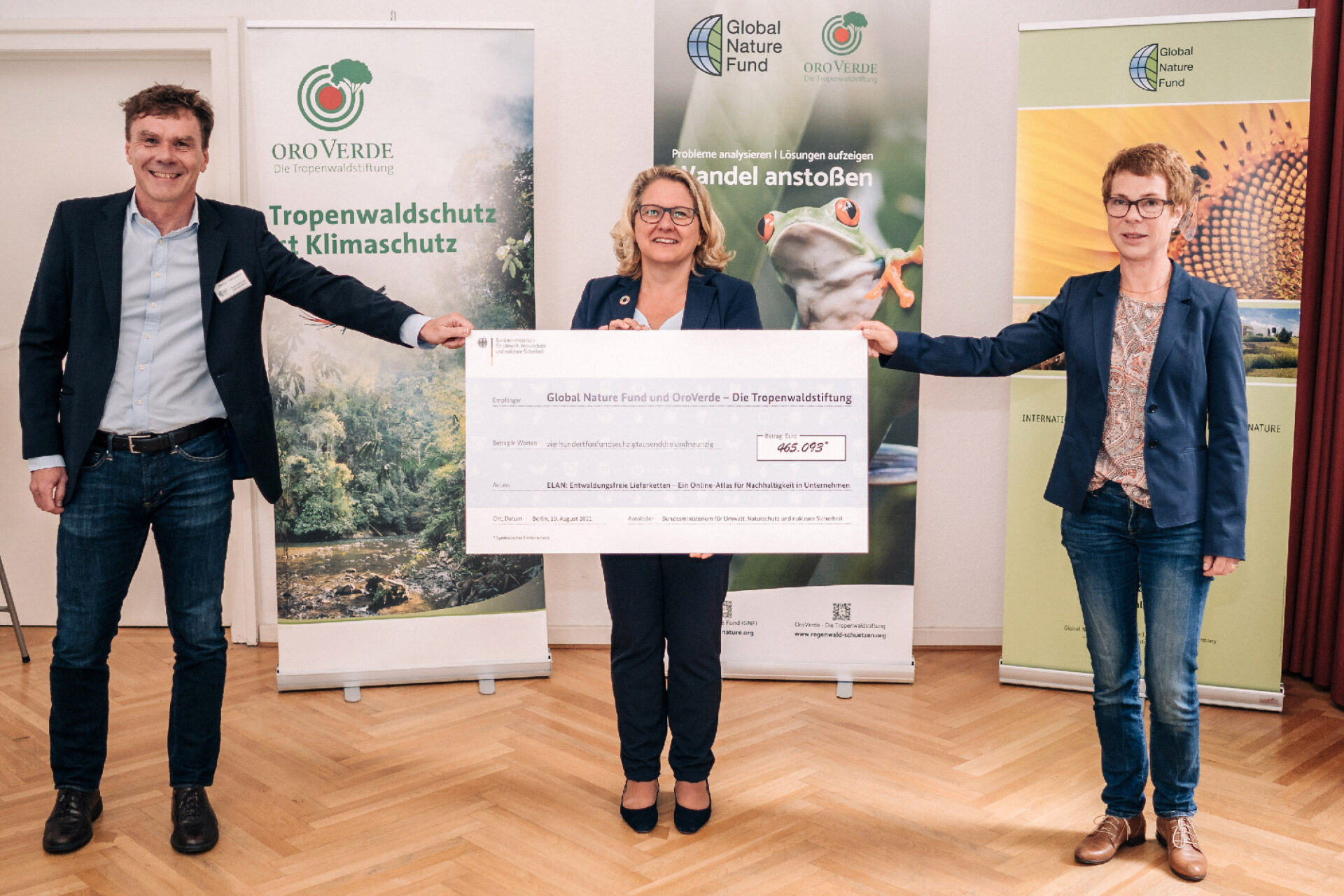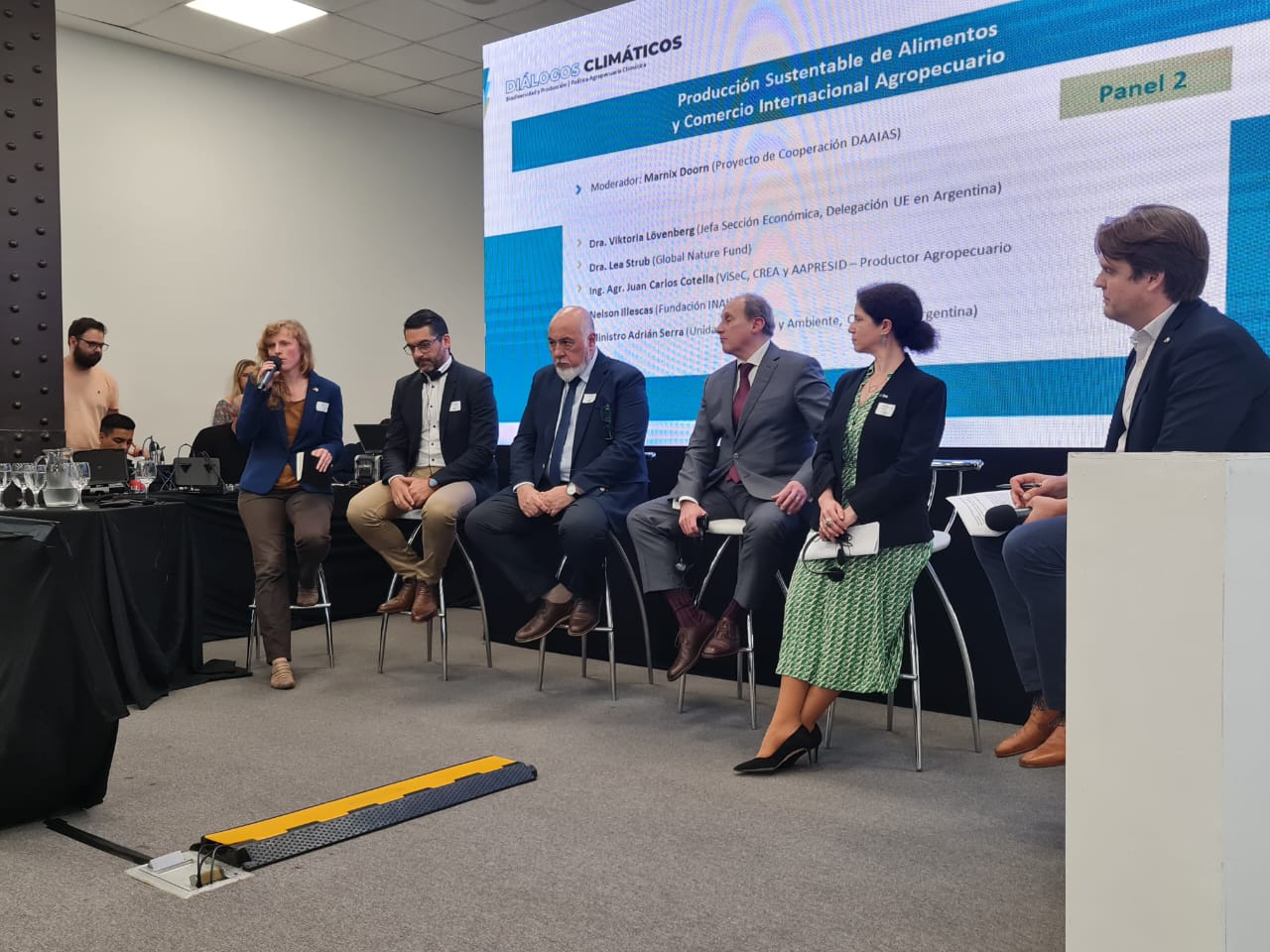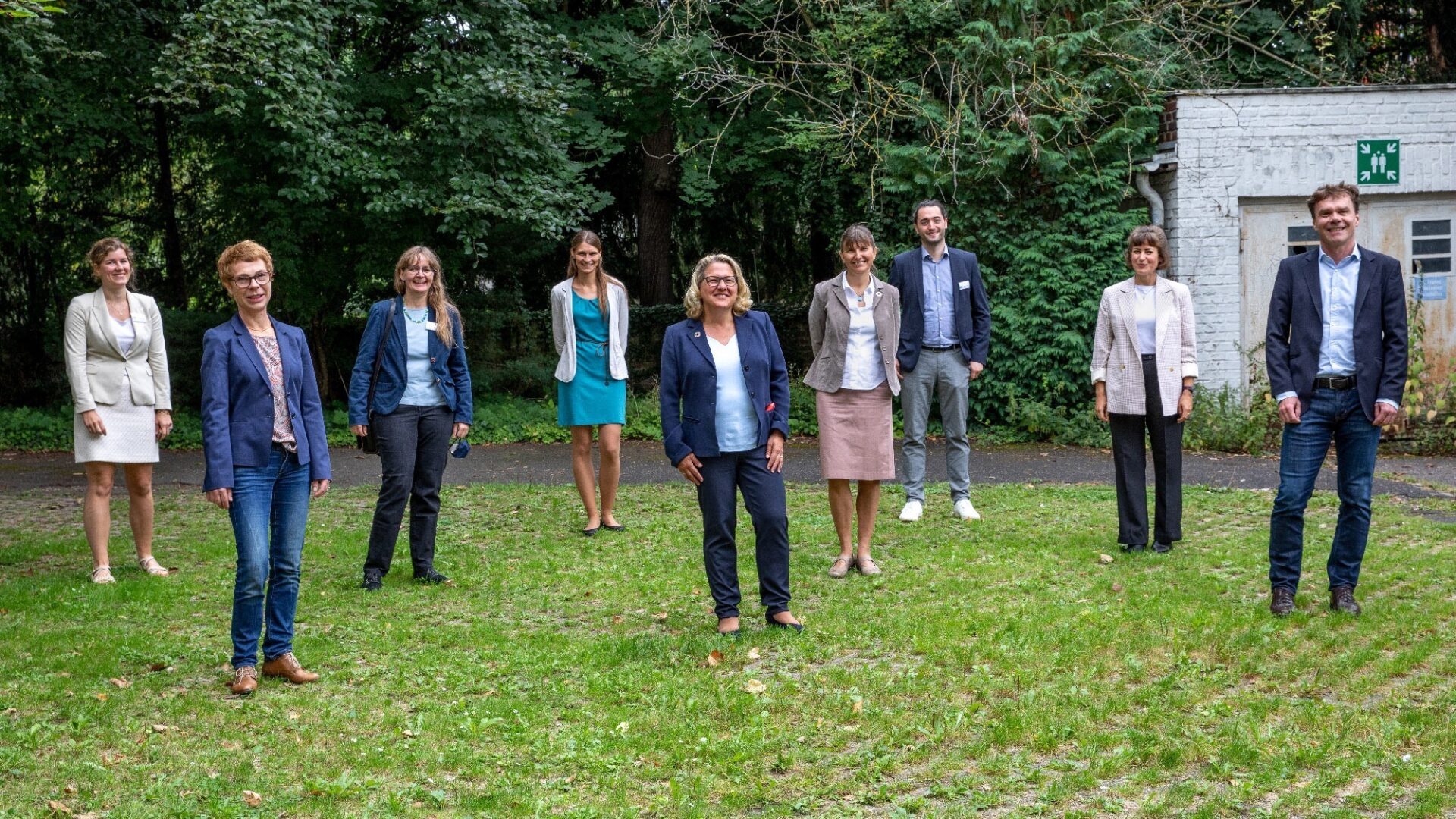We are committed to deforestation-free supply chains. We support companies in Germany in converting their supply chains. In this way, we protect forests all over the world.
The EU is the world’s second largest importer of deforestation-related products. Rainforests are being cleared for raw materials such as palm oil, cattle products, rubber, coffee, cocoa, cellulose and soy. Over 72 million hectares of forest were destroyed between 2001 and 2015. This harms biodiversity and the climate.
EU regulation for deforestation-free supply chains
The EU regulation for deforestation-free supply chains (EUDR) came into force in June 2023. The law offers an opportunity to combat deforestation effectively. However, for companies, especially those that have not dealt with the topic much or only have limited capacities, it is above all a challenge.
We provide companies with information and support services to help them convert their supply chains to ‘deforestation-free’ and meet the requirements of the EUDR. For example, with our online information portal “elan!”, which guides companies through the conversion process in a structured manner. We developed the portal as part of the “ELAN – Deforestation-free supply chains – Active for more sustainability” project together with our project partner OroVerde and the support of selected pilot companies.
Project area
Goals
Increase awareness
Raise awareness of the importance of deforestation-free supply chains for climate and biodiversity protection.
Motivating companies
Motivate German companies to restructure their supply chains and support them in doing so.
Accompany implementation
Accompany the implementation of the EUDR by German companies with information and support services (elan! portal).
Impacts
Reduction of greenhouse gas emissions
Reduction of greenhouse gas emissions through supply chain transformation of German companies with the support of the elan! Online portal.
Reaching numerous companies
Reaching numerous companies in Germany with information and support services such as factsheets, analyses, an online portal and specialist presentations.
Strengthening the EUDR
Commitment to strengthening and further developing the EUDR in cooperation with other NGOs.
Piloting of the portal
Piloting the portal with companies.
Impressions
Contribution to the sustainability goals
Latest news
Publications
Project website
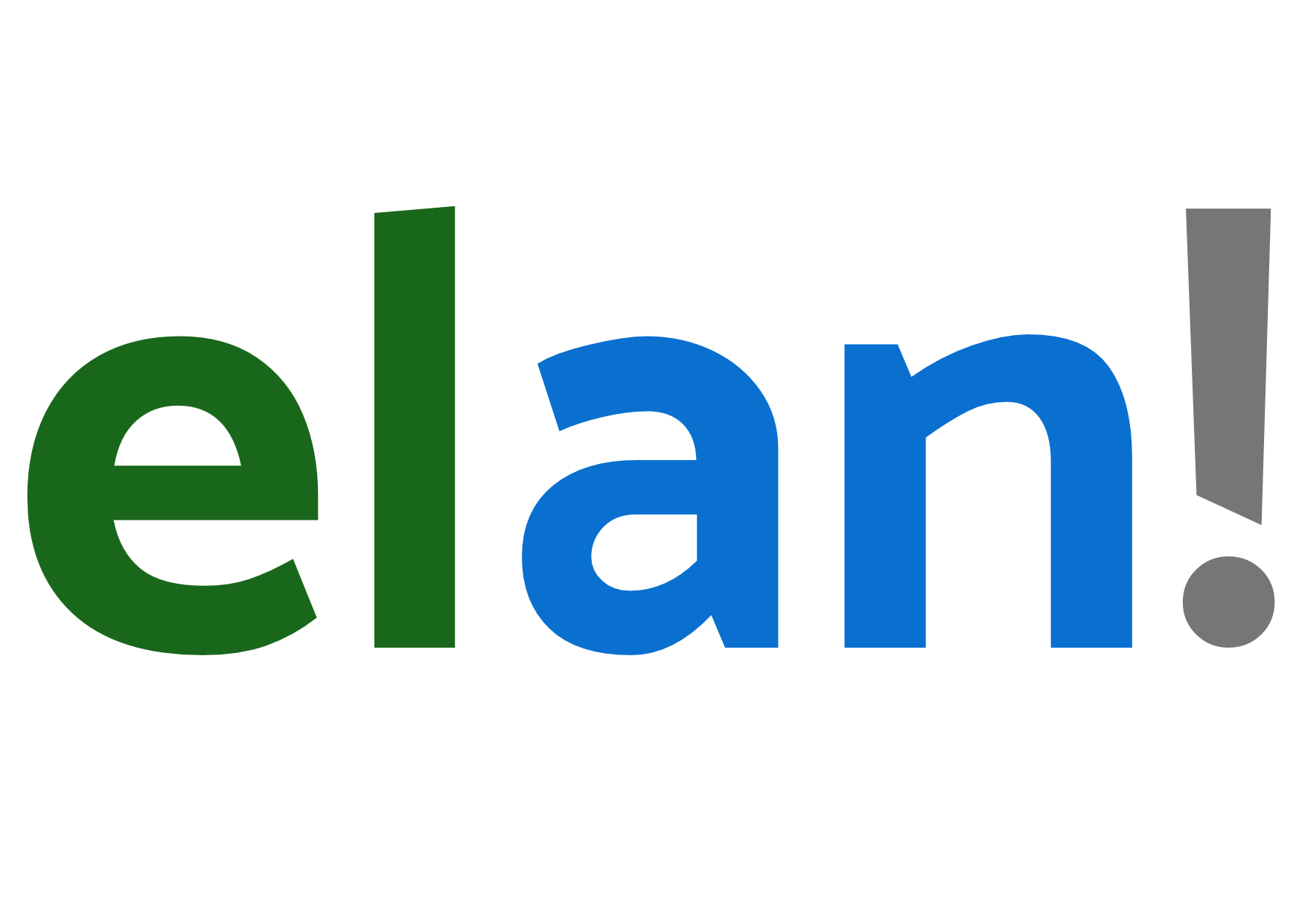
Contact persons

Steffen Kemper
Project manager
Business and Biodiversity
Tel: +49 228 184 86 94 16
kemper@globalnature.org
Sponsor
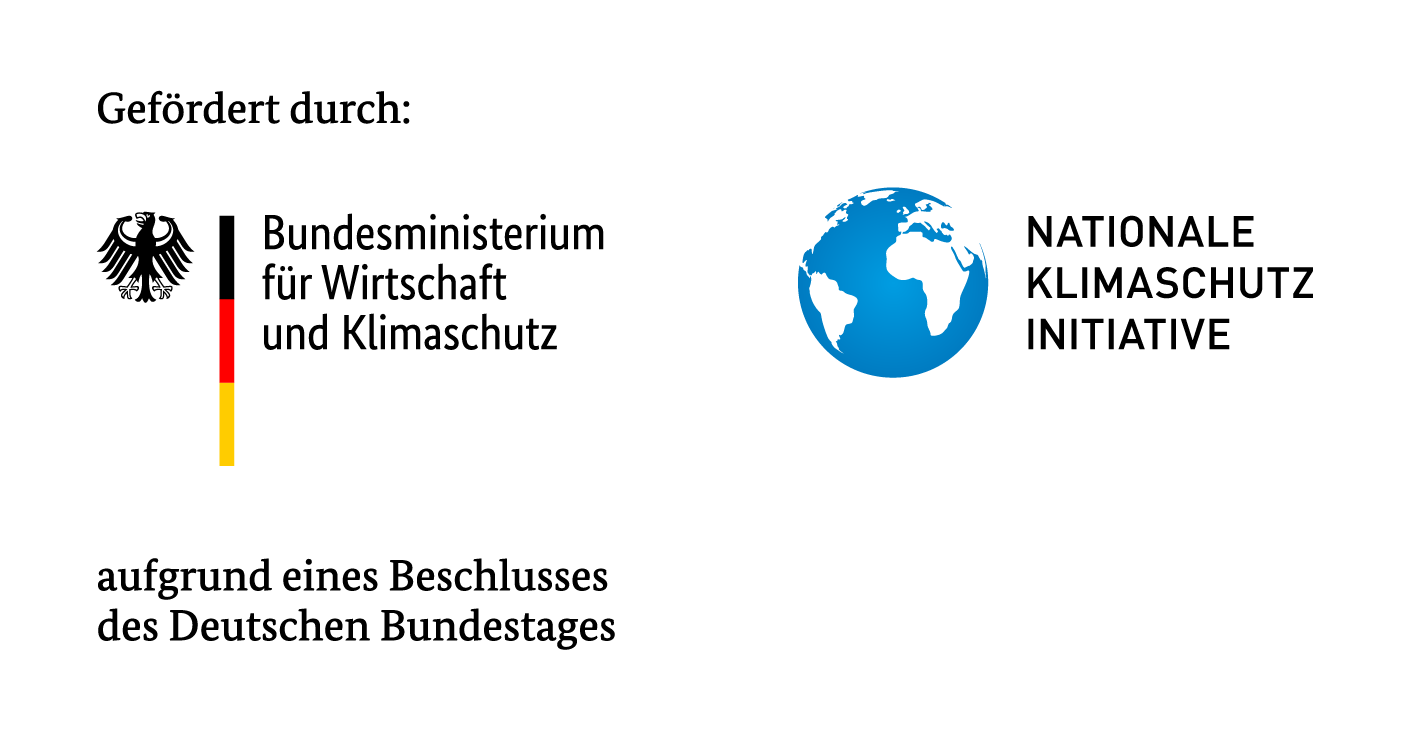
Project partners


